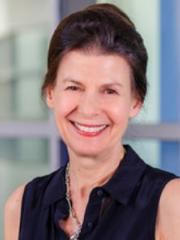Emeritus Professor Jenny Ziviani

Researcher biography
Dr Jenny Ziviani is Professor in Occupational Therapy in the School of Health and Rehabilitation Sciences.
She has research and teaching interests optimizing the ability of children participate in the activities with comprise their daily lives at home, school and in the community. She has a particular interest in supporting children with developmental difficulties, such as Developmental Coordination Disorder, Cerebral Palsy, Fetal Alcohol Spectrum Disorder and Austism Spectrum Disorder. She also works with families where children have experienced trauma such as head injuries and burns and who are involved in rehabilitation to enable their transition back to home, school and community life. Dr Ziviani has actively collaborated with a number of clinical centres to determine how therapists can examine the efficacy and outcomes of rehabilitation practices with children and their families. She has looked at this with various interventions for children with cerebral palsy, head injuries and other traumatic events. Of prime interest here is how functional change can impact participation and quality of life. Understanding and measuring participation in children as presented by the World Health Organisation, International Classification of Function (ICF) is central to this process. Professor Ziviani works within a framework of family centred care and has researched the qualities of therapeutic interactions which promote therapy engagement and enhance therapy outcomes.
Dr Ziviani has also looked more broadly at the way social and technological change has impacted on the way children use their time. She has had a particular interest in the way physical activity has changed as a result of the way children undertake their daily roles and the socio-environmental factors which can impact this involvement. She is a member of the research working group that produces the Australian Physical Activity Report Card for Children and Young People.
Dr Ziviani enjoys working in an interdisciplinary context and has encouraged her postgraduate students to do likewise. She works with collaborators in paediatrics, human movement science, physiotherapy, speech pathology, psychology, social work, audiology and education.
